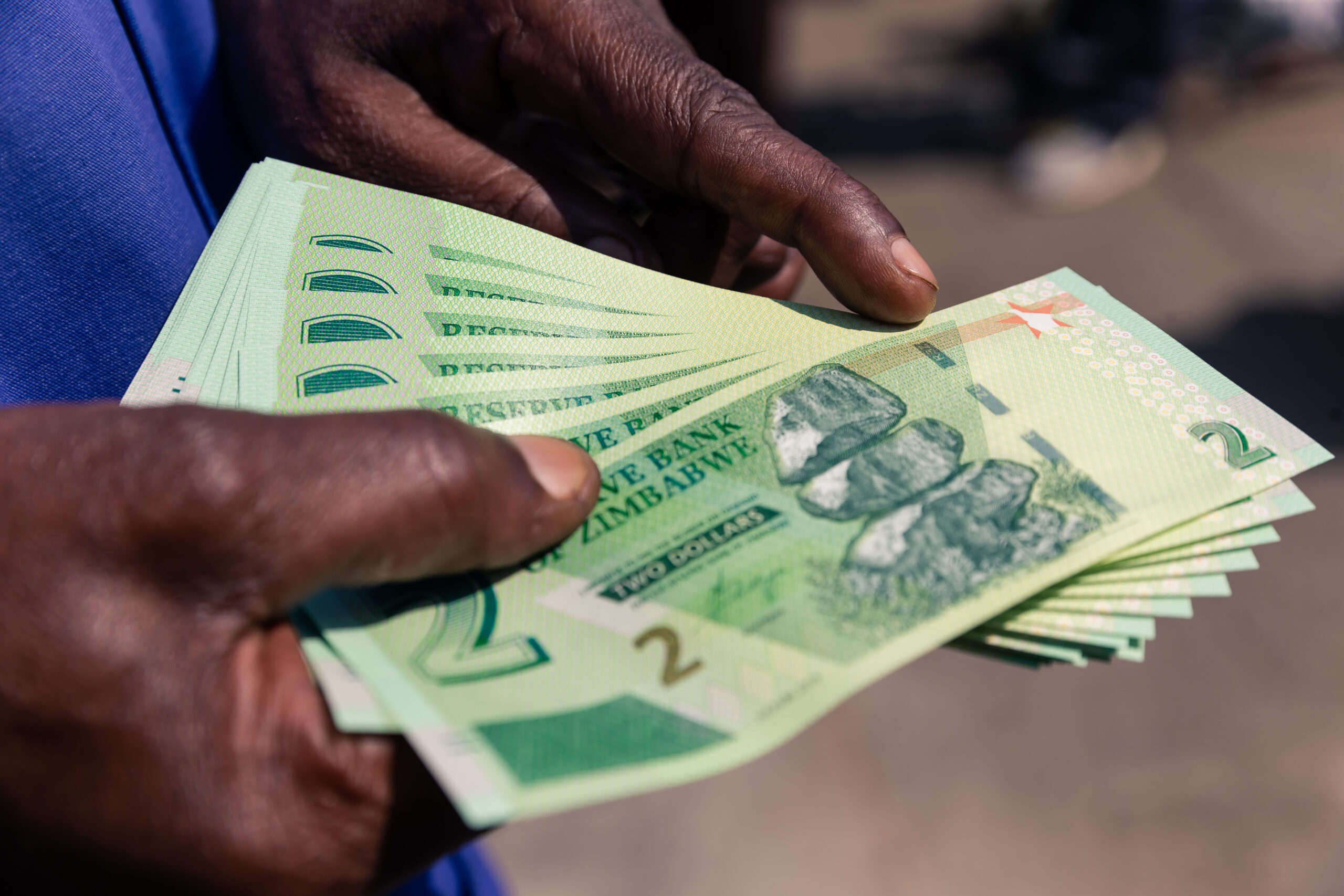Reform forex market to save whatever is left of ZWL
The ZSE All Share Index has skyrocketed an impressive +171,35 percent year-to-date, indicating a broad-based rally across the market. All major indices are mirroring this positive trend, with the ZSE Top 10, Top 15, Medium Cap, and Small Cap indices all experiencing significant gains.
Tapiwanashe Mangwiro
The local currency has lost so much value in the past three years such that the country is virtually dollarised again, but experts believe that letting the foreign currency market free might save whatever is left of the local currency.
Zimbabwean economists say a pressing need for revision in the foreign currency market has been highlighted as essential for boosting local currency uptake.
The economic landscape has been marred by hyperinflation and the prevalence of foreign currencies as the preferred medium of exchange. Despite the country’s official currency, the Zimbabwean dollar, being reintroduced in 2019, it has struggled to gain widespread acceptance among the population.
This reluctance stems from memories of past economic turmoil and currency devaluation.
According to economist, Valerie Mashonga; “The lack of confidence in the local currency is a significant barrier to its adoption. We need a comprehensive approach that addresses both economic fundamentals and public perception to restore faith in the Zimbabwean dollar.”
To address these concerns, the analysts advocate for a thorough revision of the foreign currency market.
One key aspect they emphasise is the need for transparent and efficient exchange mechanisms that instill confidence in businesses and individuals alike.
Economist, Enoch Rukarwa, noted that the major challenge that we have in our country is the parity between the official exchange rate and the alternative exchange rate, which then creates arbitrage opportunities within the economy.
He noted; “I would like to believe that full liberalisation of the foreign exchange market should go a long way in dealing with the challenges that we have in the foreign exchange market. Remember, we have been through this road, especially around 2009 to 2013, 2014, thereabout.”
Another economist, Dr Prosper Chitambara, believes the country may need to fully liberalise the foreign exchange market and go to a full float system but again, that may not be enough, in the absence of other forms especially on the fiscal front and on the institutional front.
“So, we need to keep a grip on public spending, a tight grip, a tight reign. But again, that is not an easy thing to do given the structure of public spending in the country. We have a lot of non-productive spending. And in fact, our fiscal policy is even expansionary,” he said.
Learning from successful free market foreign exchange systems, the country could adopt strategies that have proven effective in other countries.
Another monetarist, Shepherd Hoshani said; “Countries like Singapore and Switzerland have successfully maintained stable local currencies by implementing market-driven exchange rates. We should study these models and adapt them to suit our economic context.”
Singapore and Switzerland serve as noteworthy examples of countries with robust foreign exchange markets. Singapore, with its managed float system, allows its currency to fluctuate within a predetermined band, promoting stability and investor confidence.
Switzerland, renowned for its strong economy, has a free-floating exchange rate that adjusts based on market forces, contributing to the resilience of the Swiss franc.
However, Rukarwa noted that the other challenge that probably might exist is the fact that the government is both a player and a regulator in the foreign exchange market.
“So obviously, the supply side when the provision of the services from a government perspective might be constrained if full liberalisation is going to exist within the economy. But only confidence can actually deal with that,” he added.
Chitambara added; “We are in a vicious cycle so to speak. So, it is going to be difficult, institutional reforms, parastatals, anti-corruption reforms. I think we need to look at it from a more comprehensive and more holistic approach.
“But probably fully liberalising the exchange rate, the exchange market may help to some extent in terms of addressing the premium and the distortions in the premium.
“Remember, we have been through this road, and we believe that we can also go through it. The US dollars can actually start filtering at an increased rate within the banking system, like what it did prior.”
“However, what needs to be created is the confidence thereof, the depositors’ confidence, that’s one, and also the confidence within the system and this can be done through consistency in policy, and also ensuring that there are no loose ends in terms of the policy positions that are taken by the government,” Rukarwa said.
Chitambara is of the opinion that liberalisation is not going to help matters unless it is accompanied by other measures, that is fiscal measures, even institutional reforms, to ensure restoration of economic confidence.
Collectively the experts believe that restoring confidence in the Zimbabwean dollar requires not just economic reforms, but a concerted effort to change public perception. A transparent and efficient foreign currency market is also pivotal in encouraging the use of the local currency.
Zimbabwe has the opportunity to learn from successful foreign exchange market models and tailor reforms to its specific needs.
The path to increased local currency uptake lies in fostering confidence through transparent mechanisms and learning from the successes of other nations on the global stage.-ebusinessweekly










